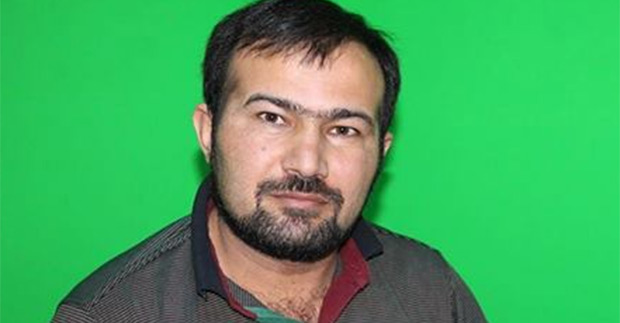Mapping Media Freedom: In review 16-22 September
Each week, Index on Censorship’s Mapping Media Freedom project verifies threats, violations and limitations faced by the media throughout the European Union and neighbouring countries. Here are five recent reports that give us cause for concern.
France: National Front refuses access to independent journalists for summer conference
Le FN refuse toujours certains médias car ils posent trop de questions gênantes en désaccord avec leurs idées… https://t.co/8pmw2hwdPi
— Tous contre le FN (@TousContreLeFN_) September 15, 2016
The right-wing National Front (FN) party of France held its summer conference in Fréjus earlier this month. On 16 September the party refused to allow access to the independent media website Mediapart and the Quotidien television programme. The party has denied access to Mediapart in the past due to its critical reporting on the party.
Journalists’ societies of Radio France, le Monde, le Figaro, Libération, le Parisien, les Echos, Courrier International, AEF, France 2, France 3, TF1, Itélé/Canal+ denounced the ban and said they hoped it would not happen again. The FN has refused to grant access to journalists in the past despite this being against the law.
Regardless of the party’s attempt to keep Mediapart from the summer conference, the website claims they hired a freelance writer to cover the event.
Russia: Dozhd TV journalist removed from polling station by police
Vladimir Romensky was removed by police from a Russian polling station on 18 September. Romensky is a reporter for the independent television channel Dozhd and was sent to the polling station to investigate potential voter fraud. He was responding to rumors that ballot stuffing had occurred at the site.
When Romensky attempted to enter he was approached by a man who refused to introduce himself and did not allow Romensky or his camera crew to access the polling station. A nearby police officer then intervened and demanded to see Romensky’s documents. Despite having all the necessary documents for his camera crew and himself, the police officer called armed guards and pushed the crew out of the station.
Russia: Fontanka journalist detained for investigating voter fraud
Dmitry Korotkov, a reporter for the Russian news site Fontanka, was arrested in St Petersburg on 18 September while investigating voter fraud.
Korotkov was looking into information about carousel voting, which occurs when an organised group of voters travels to different voting districts to repeatedly vote, even though they are not registered in that district. Fontanka discovered that voters were given four ballots at a certain polling station after revealing a special stamp on their passports to polling officials.
Korotkov was able to obtain the passport stamp and received four ballots at the designated polling station even though he was not registered in the specific district. In response, the polling official offered for him to sign as another voter.
Korotkov revealed to the polling official who he was and the fraud that was occurring. The official promised to investigate the situation and called the police, however Korotkov was detained instead. They charged him with illegally obtaining ballot papers.
Cyprus: Crime reporter’s car set on fire in response to her investigations
Arson attack on journalist’s car: A car belonging to the crime correspondent Dina Kleanthous of online news s… https://t.co/t7MzdvCO40
— Tweet Cyprus (@TweetCyprus) September 19, 2016
At around 2am on 19 September, crime reporter Dina Kleanthous’ car was set on fire by an unknown arsonist.
Kleanthous is a reporter for the online news site Reporter Online. She believes the act is not personal, but a response to her work. Kleanthous had recently been receiving threats regarding a story she was covering.
Dunja Mijatović, a representative for the Freedom of Media in the OSCE, said: “This blatant attempt to coerce a journalist who is reporting on news of public interest is simply unacceptable, I urge the authorities to investigate this incident thoroughly and bring to justice those responsible.”
Azerbaijan: Independent newspaper editor-in-chief questioned by police
Azerbaijani Minority Journalist Arrested On Drug Charges: The chief editor of the Baku-based “Tolisi sado” (The … http://t.co/IUvXiBbM
— FreePresss (@FreePresss) June 22, 2012
Hilal Mammadov, the editor-in-chief of the independent newspaper Tolyshi Sado, was summoned by police on 19 September. The newspaper covers the ethnic minority of Talysh in Azerbaijan.
Mammadov is a former political prisoner, sentenced to five years in prison in 2013 on spurious charges of “illegal selling of drugs”, “high treason”, and “incitement to national, racial, social, and religious hatred and hostility”. Mammadov was pardoned in March 2016.
After being summoned on 19 September, Mammadov claims the police asked him whether he was a part of a “secret opposition“ and he was forced to give the names of his family to the officials.
Mapping Media Freedom
|


